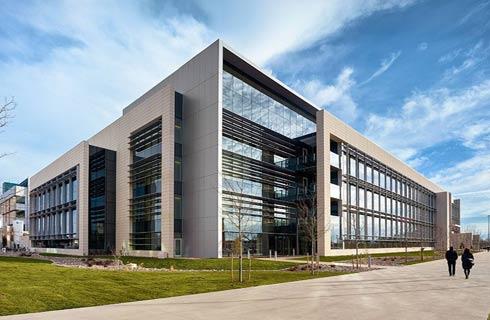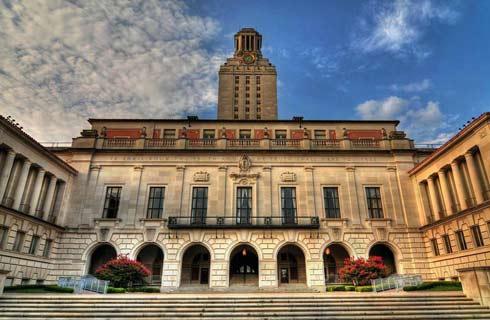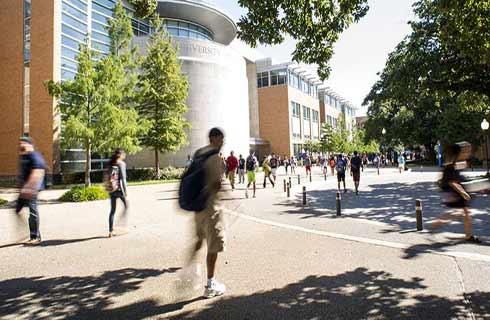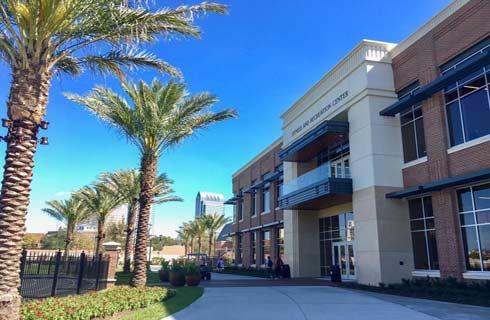- IDP China>
- 课程库>
- 自然科学>
- 自然资源与保护>
- 环境科学>
- Doctor of Philosophy in Engineering Sciences - Environmental Science and Engineering
工程科学哲学博士-环境科学与工程
Doctor of Philosophy in Engineering Sciences - Environmental Science and Engineering

学历文凭
Ph.D.

专业院系

开学时间

课程时长

课程学费

国际学生入学条件
IDP—雅思考试联合主办方

雅思考试总分
6.5
了解更多
雅思考试指南
- 雅思总分:6.5
- 托福网考总分:80
- 托福笔试总分:160
- 其他语言考试:NA
CRICOS代码:
申请截止日期: 请与IDP顾问联系以获取详细信息。
课程简介
Environmental Science and Engineering at Harvard School of Engineering is an interdisciplinary program with the common goal of understanding, predicting and responding to human-induced environmental change. Environmental scientists at Harvard address environmental issues such as global warming, stratospheric ozone depletion, and local and regional air and water pollution. This work requires perspectives from a diverse set of scientific disciplines including atmospheric physics and chemistry, oceanography, glaciology, hydrology, geophysics, ecology, and biogeochemistry. We view the earth's systems as a complex set of chemical, physical and biological interactions, made even more complicated by the various activities of human society. Through exploration of the underlying processes and feedbacks within the Earth system, and with a range of approaches from theory and modeling to experiments and observations, we train undergraduate and graduate students to think about environmental processes in an integrated fashion, preparing them to manage the environmental challenges we face. Research is strongly interdisciplinary, with many connections to Earth and Planetary Sciences and other science and policy programs at Harvard.
相关申请
 预科
预科 奖学金
奖学金 实习机会
实习机会 在校学习
在校学习 跨境学习
跨境学习 校园授课-线上开始
校园授课-线上开始 在线/远程学习
在线/远程学习
学校排名

世界排名6
数据源:泰晤士高等教育世界大学排名
关于哈佛大学

先后诞生了八位美国总统,40位诺贝尔奖得主和30位普利策奖得主。哈佛大学商学院案例教学盛名远播。这里也培养了缔造了微软、IBM、Facebook等一个个商业奇迹的人。哈佛大学教学资源之丰富令人咋舌。哈佛大学拥有70个独立图书馆,3000英亩森林研究站,12座教学用博物馆,占地265英亩的植物园,哈佛大学有24座科学研究专用校舍,多个剧院和舞台,41支体育团队,450个学生社团……除此之外,你还能够跨界注册哈佛研究生院与职业学院,甚至邻居麻省理工的课程! 满足哈佛大学本科录取要求的学生SAT Math部分平均成绩在710到790之间;Verbal部分平均得分在700-800之间;平均SAT总分(Combined)为2225,比全美其它各大学的录取平均SAT成绩高出了41.3%。每年约有70%的学生能够获得奖学金,且申请奖学金不会影响申请者被录取的几率。
本校相关课程

公共卫生博士
学历文凭
Ph.D.
开学日期
课程费用总额


公共卫生硕士(45学分)
学历文凭
Masters Degree
开学日期
课程费用总额


工商管理硕士/医学博士
学历文凭
Combined Graduate / Doctoral Degree
开学日期
课程费用总额


法学博士/国际发展公共管理硕士
学历文凭
Combined Graduate / Doctoral Degree
开学日期
课程费用总额


法学硕士
学历文凭
Masters Degree
开学日期
课程费用总额


法学博士
学历文凭
Juris Doctor
开学日期
课程费用总额





















 美国
美国




